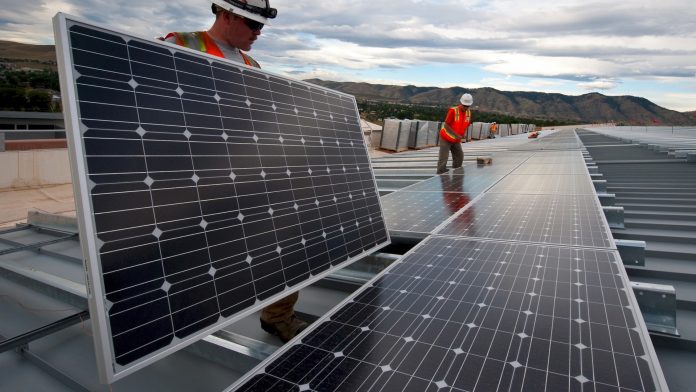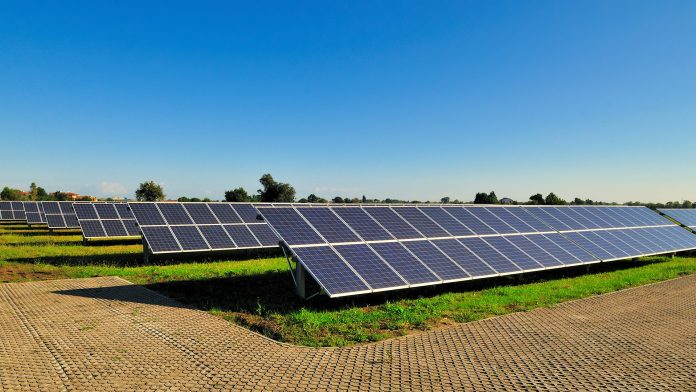LOUISVILLE, KY — Consumer Energy Alliance (CEA) today announced the launch of a new campaign called “Kentuckians for Solar Fairness,” which aims to raise awareness on smart ways to continue the responsible growth of the Commonwealth’s solar deployment while ensuring that costs on the universal grid remain fair for everyone – both private solar and non-solar users – especially families, seniors, and those struggling to pay their energy bills.
“We strongly support the expansion of solar as part of our state’s growing energy mix, which is why it’s important we continue to examine our existing policies and make sure they’re keeping pace with the tremendous changes underway in this dynamic industry,” said Brydon Ross, CEA’s Vice President of State Affairs. “But Kentucky’s 14-year old private solar program was based in a different era. It no longer adequately advances solar development in the broadest possible way. It’s time to consider effectively updating and evolving solar policies so we don’t negatively impact the future of solar growth.”
The long-time Kentucky resident added: “Currently, our incentive structure continues to compensate participants at 300 percent above the competitive price for energy, even though installation costs have dropped 70 percent in recent years. Further, the current private solar program creates gaps in paying for continuous power delivery and service that we all enjoy – inadvertently passing those costs on to folks who have yet to adopt private solar. We need to ensure that this ‘cost-shifting’ is properly addressed before it becomes an even bigger problem – like we’ve seen in other states – while continuing to promote policies that encourage solar use and affordable prices.”
Commenting on CEA’s new campaign, Dave Adkisson, President and CEO Kentucky Chamber of Commerce, stated “We are pleased to support this effort. The Kentucky Chamber is focused on ensuring reliable, affordable power in Kentucky and supports legislation that guarantees customers pay their fair share of utility services. It is important to revisit policies, such as our private solar laws, which were originally designed to support new technologies, as our energy landscape is rapidly changing.”
Lee Lingo, the Executive Director of the Kentucky Association of Manufacturers (KAM) stated, “KAM is always working with our utility partners to maintain strong, reliable, affordable energy and ensure costs for manufacturers stay competitive to keep our sector and the Commonwealth growing. It is always good to review older policies to ensure they are still relevant and competitive in today’s marketplace. We believe it is prudent to look at private solar policies to make sure rates and costs remain equitable and fair for everyone while growing the industry.”
“Kentuckians for Solar Fairness” will serve as an education portal for the public to learn more about Kentucky’s solar policies, keep track of breaking news, and share their voices with policymakers. CEA has a long history in promoting pro-solar, pro-grid, and pro-consumer policies. In 2016, CEA issued the first-ever comparison of state and federal incentive policies across 15 states, to help inform debate across the country. It found that, in many states, total incentives are greater than a private solar system’s total costs, pushing expenses onto less affluent customers who cannot participate in private solar programs.
Kentucky’s 2018 Legislative Session offers an opportunity to enact meaningful reform of the Commonwealth’s private solar credit programs, aligning incentives so that the program has a stable future with equitable costs. Recent legislation was filed by Rep. Jim Gooch, which provides a forward-thinking approach that:
- Protects families, seniors, businesses and lower-income households from cost shifting
- Expands solar deployment and ensures incentives are sustainable
- Grandfathers in existing private solar customers
To learn more about Kentuckians for Solar Fairness, please visit: https://consumerenergyalliance.org/kentuckians-solar-fairness/
###
About Consumer Energy Alliance
Consumer Energy Alliance (CEA) brings together families, farmers, small businesses, distributors, producers and manufacturers to support America’s energy future. With more than 450,000 members nationwide, our mission is to help ensure stable prices and energy security for households across the country. We believe energy development is something that touches everyone in our nation, and thus it is necessary for all of us to actively engage in the conversation about how we develop our diverse energy resources and energy’s importance to the economy. Learn more at ConsumerEnergyAlliance.org.
Contact:
Emily Haggstrom
P: 720-582-0242
ehaggstrom@consumerenergyalliance.org



























